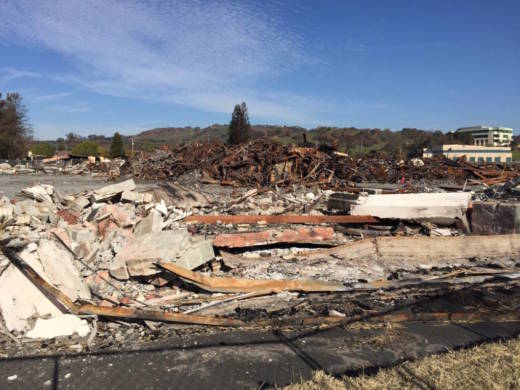In February Cal/OSHA fined RHCI $32,450. After the company appealed, the penalty associated with the company’s failure to check the truck for defects was downgraded and the fine was reduced to $11,700.
Cal/OSHA’s description of Sumner’s death, which occurred just after dark had fallen on a Friday evening, is brief and graphic.
Sumner had just finished dumping his last load and was reconnecting the truck to its trailer. As part of the procedure, the vehicle was in reverse gear when Sumner hit the remote starter at the back of the vehicle. The Cal/OSHA report noted the remote starter had been “hotwired directly to the (truck’s) battery, bypassing all safety devices that would have prevented the truck from starting.”
“The system itself was made defective by tampering,” said Cal/OSHA spokesman Frank Polizzi. “The modification of the wiring … was probably the cause of the fatal accident.”
Cal/OSHA was unable to determine who exactly manipulated the wiring, according to Polizzi.
The report said that with the safety systems disabled, the truck continued to back up even as it knocked Sumner down, with its left rear wheels running over his left arm and vehicle, pinning him.
The truck’s spinning tires sent smoke into the air for about 20 minutes before workers “some distance away” noticed, the report says. The workers had no idea someone was hurt — they thought there was a fire and called firefighters.
It was only after the truck was shut down and the smoke cleared that first responders realized Sumner was trapped beneath the truck. The Sonoma County coroner said he died from asphyxiation and that “multiple blunt force trauma and thermal injuries” were contributing factors.
Craig Peters, a lawyer specializing in personal injury and wrongful death cases involving heavy equipment, said Sumner’s death was avoidable.
“The employer or somebody thought that they could do this more efficiently if they just disabled the pesky safety device,” said Peters, who reviewed Cal/OSHA’s summary report.
The practice of modifying truck wiring for devices like kill switches is not rare, according to Peters.
“It definitely predominates in the industries in which marginalized and disenfranchised labor tends to be the labor pool,” he said.
A representative for Hill Construction did not respond to a request for comment.
It’s unclear which of the cleanup project’s main contractors the firm was working for.
A spokeswoman for AshBritt Environmental, the principal contractor for the cleanup, referred questions about the incident to the U.S. Army Corp of Engineers. AshBritt said Hill was contracted under another company, Petaluma-based Team Ghilotti.
An official at Team Ghilotti did not return a request for comment.
The U.S. Army Corp of Engineers, which is running the massive fire debris operation, conducted its own investigation into Sumner’s death but has yet to release the results of its probe. A spokeswoman for the federal agency said it did not have oversight over the “chain of subcontractors” hired by AshBritt.
Hill Construction says it has worked on close to $50 million dollars of public works contracts in the last five years. The company has not been the subject of complaints from state workplace or contracting regulators in recent years.
The company, under the name RHC Equipment, has been hired several times by state firefighting officials to help work wildfires with heavy equipment, said Cal Fire spokeswoman Lynne Tolmachoff.
Sumner’s death came two months after the death of another private contractor helping deal with the North Bay wildfires.
Garrett Paiz, 28, died Oct. 16 when his water tanker overturned in Napa County as he helped battle the Nuns Fire.

